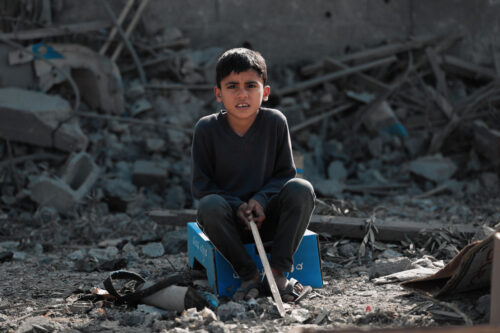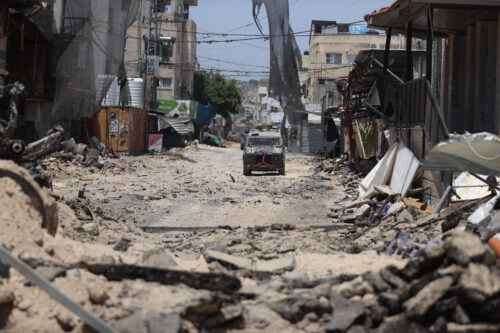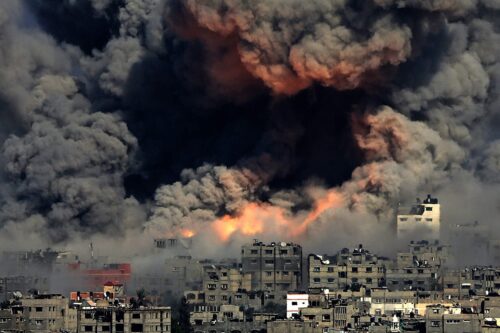Eid Al Adha and the inner dimensions of sacrifice
The act of sacrificing an animal during Eid Al Adha is a process enjoined on all Muslims to remember Prophet Ibrahim’s submission to God.
However, if we try to take a closer look at what it really meant for Prophet Ibrahim to submit to God in such a profound way, are we able to gain a deeper understanding of this practice? More importantly, how can we apply this understanding to our own faith?
The act of Qurbani is highly symbolic. The very process itself symbolises the way we can build our personal belief in the Oneness of God through the destruction of idolatry within our hearts.
The story of Prophet Ibrahim is central to understanding this. His faith and willingness to wholly submit to God was tested to the highest degree. His son Prophet Ismail, who he loved so dearly, suddenly appeared to weigh against his own obedience to God.
What we learn from Prophet Ibrahim’s story, however, is that the world and all it encompasses does not have to be an obstacle to faith and submission. Rather, the obstacle lies in the way we perceive all things in this world.
Rather than loving a worldly thing just for what it is, Eid Al Adha reminds us that our love should not end there. If it does, we risk a dangerous kind of idolatry in our hearts. Instead, our love for something should go beyond it, to He who created it.
This is the very essence of Prophet Ibrahim’s willingness to sacrifice his son. Prophet Ismail was not the obstacle to his father’s faith and submission to God. The obstacle was the nature of Prophet Ibrahim’s love for his son.
Therefore, the destruction of idols in the physical world can only really become worthwhile when we take a look at our inner self and love what exists around us in the name of God alone.
What is more, this inner process connects us to an outside world that is so much bigger than we’re able to comprehend. Beginning during the times of Prophet Ibrahim, it connects us to the past and through distances. It enables us to look at the nature of how we perceive our world and unites the Ummah around a common understanding.
Who has made the earth a resting place for you, and the sky as a canopy, and sent down water (rain) from the sky and brought forth therewith fruits as a provision for you. Then do not set up rivals unto Allah (in worship) while you know (that He Alone has the right to be worshipped)” [fusion_builder_container hundred_percent=”yes” overflow=”visible”][fusion_builder_row][fusion_builder_column type=”1_1″ background_position=”left top” background_color=”” border_size=”” border_color=”” border_style=”solid” spacing=”yes” background_image=”” background_repeat=”no-repeat” padding=”” margin_top=”0px” margin_bottom=”0px” class=”” id=”” animation_type=”” animation_speed=”0.3″ animation_direction=”left” hide_on_mobile=”no” center_content=”no” min_height=”none”][Al-Baqarah 2:21, 22]
If you would like to discover more, why not attend our one-day conference Patience, Reliance & Sacrifice – Lessons from the life of Prophet Ibrahim (‘alayhis salam) on Saturday 27th September at the Edmonton Islamic Centre. Follow this link for more information.
020 8961 9993
[/fusion_builder_column][/fusion_builder_row][/fusion_builder_container]
Calculate your Zakat
Confused about how to calculate your Zakat? Try our simple-to-use calculator





